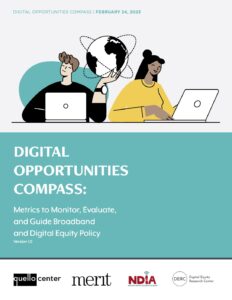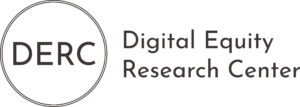 I am incredibly honored and excited to announce that I have just signed a contract for my new book to be published by the University of California Press in 2025!
I am incredibly honored and excited to announce that I have just signed a contract for my new book to be published by the University of California Press in 2025!
The title of the book is Digital Equity Ecosystems and will be published as part of the UC Press Technology Studies list.
The book builds on the past 7 years of my own research, including research with others, that has investigated the interactions between individuals, populations, communities, and their larger sociotechnical environments that all shape the work to advance digital equity and social, economic, and racial justice. More concretely, Digital Equity Ecosystems will provide an examination of the formation, structure, and function of digital equity coalitions across the U.S., as one unit of analysis, and their implications for research, practice, and policy using a digital equity ecosystems approach.
As I wrote in my proposal to UC Press,
Through a comprehensive review of theories and concepts across the fields of information, communication, technology, and public health studies, as well as by presenting original case study research of digital equity coalitions in communities across the U.S., the book explains why a digital equity ecosystems approach to digital inequalities is so urgently needed now, particularly during a time of unprecedented national investment in response to the social, technical, and racial inequalities exposed during the COVID-19 pandemic. The book also underscores the urgency of this approach not only to bridge the digital divide, but also to strengthen civil society and the future of democracy.
I am incredibly excited to join the community at UC Press and their amazing list of authors, including my colleagues Melissa Villa Nicholas and Tonia Sutherland, whose work I deeply admire.
Stay tuned here for updates!



